Hillsborough inquests: David Duckenfield admits causing 96 deaths
- Published
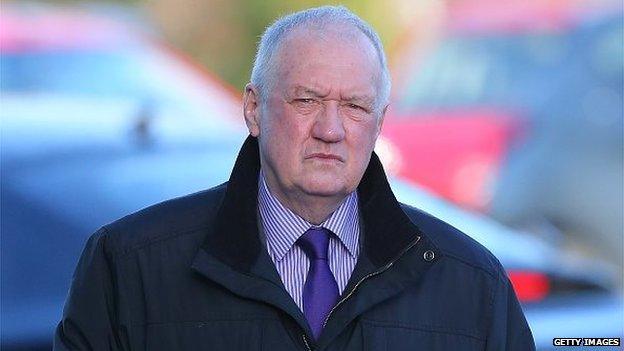
Former chief superintendent David Duckenfield was in charge of policing at Hillsborough stadium in 1989
The Hillsborough police match commander has agreed his failure to close a tunnel "was the direct cause of the deaths of 96 people".
David Duckenfield also accepted he "froze" during the afternoon of the 1989 football disaster.
Mr Duckenfield was giving evidence for a sixth day at the new Hillsborough inquests in Warrington, Cheshire.
He was being questioned by Paul Greaney QC on behalf of the Police Federation of England and Wales.
Mr Duckenfield, now 70, had earlier denied claims he "bottled it" and "panicked" as the disaster unfolded.
'Under pressure'
The jury was told the former chief superintendent had at least three minutes to "consider the consequences" of opening an exit gate at the stadium, as a crowd of fans built up outside.
Mr Greaney suggested a child of "average intelligence" could have realised what would happen when the gate, which allowed up to 2,000 fans to enter, was opened.
But Mr Duckenfield said he did "not think of it on the day" because of the pressure he was under.
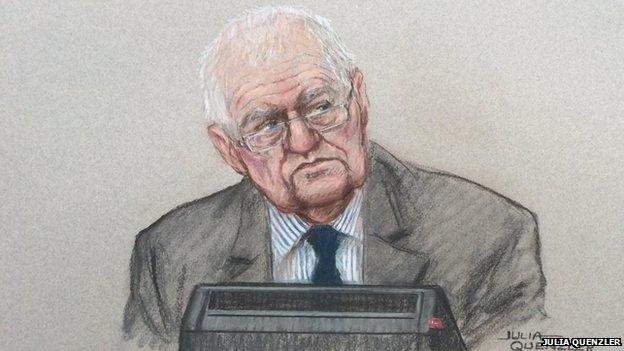
An artist's impression of Mr Duckenfield giving evidence at the new inquests into the disaster
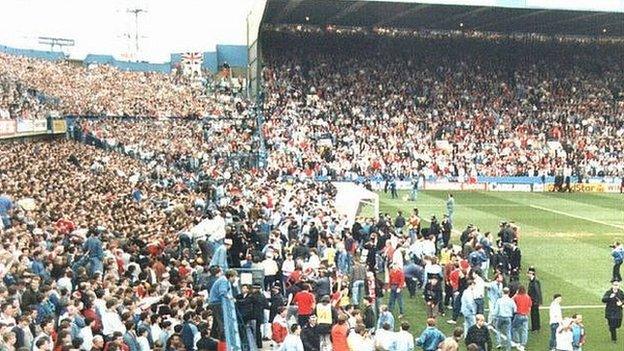
Ninety-six Liverpool fans died in the 1989 disaster at Hillsborough stadium in Sheffield
He had "no idea" Liverpool fans would head through the gate for a tunnel which led to the already-packed terraces, he told the jury.
When asked by Mr Greaney if his failure to take steps to close the tunnel entrance was the direct cause of the deaths of 96 people, Mr Duckenfield replied "yes sir".
Ninety-six Liverpool fans died after crushing at the FA Cup semi final match between Liverpool and Nottingham Forest held at Hillsborough.
Mr Greaney asked Mr Duckenfield if he had been incompetent in his role on the day of the disaster.
'Simply froze'
The retired officer answered: "I think it is a view some would agree with sir."
Mr Greaney accused Mr Duckenfield of "concealing" his full knowledge of the geography of the ground from the jury, which he denied.
When asked by the barrister if he "simply froze", Mr Duckenfield said he thought it would be "fair to say that we were all in a state of shock."
It was the match commander's job to "get past any feelings of shock", Mr Greaney said.
"Yes, sir, but I am human," Mr Duckenfield replied.
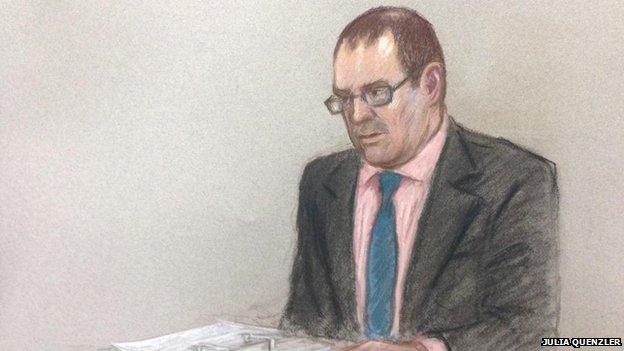
John Beggs QC, representing Mr Duckenfield, asked him if he understood the impact of his delayed apology
Earlier in the inquests, he admitted he had lied about fans forcing an exit gate open to enter the ground.
He issued a long apology to the families of the victims, who have been campaigning for 26 years to establish more detail about what happened during the disaster.
John Beggs QC, representing Mr Duckenfield, said: "I think you understand, don't you, why the delay in providing a more gracious and more full apology has caused to many both offence and distress? You understand that?"
"I fully understand that sir," Mr Duckenfield said.
The jury heard how the former police officer struggled to sleep in the run-up to the 1989 Taylor Inquiry into the disaster, and at one stage was drinking "half tumblers of whisky" to "find the courage" to read statements.
The court heard he was medically retired from South Yorkshire Police on 10 November 1991, two years after being suspended from duty.
He was certified by a force doctor as "unfit to undertake the duties of a police constable" and was diagnosed with "severe depression and post-traumatic stress disorder".

Who were the 96 victims?
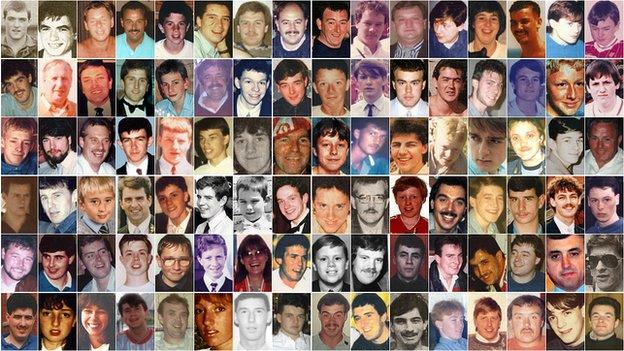
BBC News: Profiles of all those who died

Mr Duckenfield agreed he saw his diagnosis as a "sign of weakness" and tried to "conceal" his conditions from his family and colleagues.
He said it was a "matter of pride" and that he was "very ashamed and embarrassed by it all".
The jury has also heard Mr Duckenfield was interviewed under criminal caution in March last year by officers from Operation Resolve, the ongoing police inquiry into the disaster.
Mr Beggs asked him whether it had "been easy for the last five and a half days to admit that your professional failings led to the deaths of 96 innocent men, women and children and injuries to many more".
"Has that been easy, Mr Duckenfield, for you?" he said.
"Sir, it's been the most difficult period of my life," Mr Duckenfield said.
The inquests are scheduled to continue on Wednesday.
- Published17 March 2015
